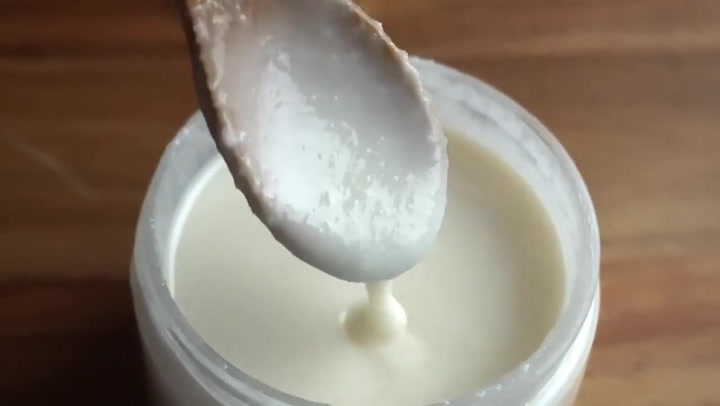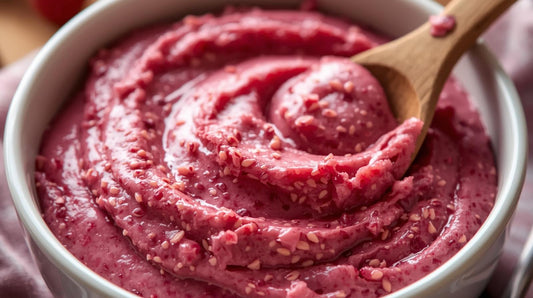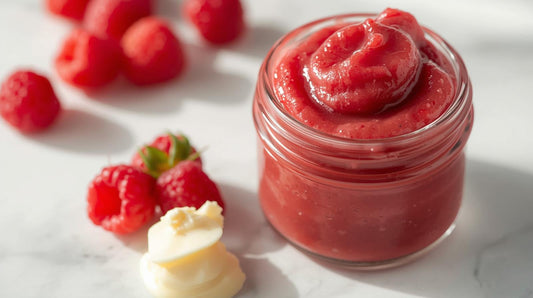Many people who enjoy this coconut butter want to know its shelf life, the difference between homemade coconut butter and store-bought coconut butter, and whether it needs refrigeration for freshness. The truth is, the longevity of coconut butter depends on storage methods, whether the jar is opened or unopened, and how you protect it from spoilage signs like rancid smell or mold. In this guide, we’ll break down everything you need to know: typical storage times, expert-backed tips for extending coconut butter’s shelf life, and practical ways to keep it delicious. By the end, you’ll not only know how long coconut butter lasts but also how to store it properly so you get the best taste and nutrition from every jar.
Factors affecting the shelf life of coconut butter
Coconut butter is different from coconut oil. While coconut oil is extracted fat, coconut butter contains the entire coconut meat, including fiber, protein, and natural sugars. This difference in composition makes it more prone to spoilage compared to coconut oil, which has a longer shelf life. Several factors affect how long coconut butter lasts. For example, homemade coconut butter lacks preservatives, so it generally spoils faster than commercial brands. Packaging also plays a role: jars with airtight seals extend shelf life, while loose containers allow moisture and bacteria to enter. Environmental conditions matter too. Exposure to heat, sunlight, or frequent air contact speeds up rancidity. According to the USDA, nut-based butters can typically last 6–12 months unopened when stored in cool, dry conditions. In practice, many coconut butter users find that refrigeration after opening keeps it fresh longer. Simply put, quality, packaging, and storage conditions all determine how long your coconut butter will remain safe and tasty.

How Long Does Coconut Butter Last?
The exact shelf life of coconut butter depends on whether it’s store-bought, homemade, opened, or unopened.
Store-Bought Coconut Butter
Commercial coconut butter usually comes with a “best by” date printed on the label. Unopened, it can last 9–12 months in the pantry at room temperature. Once opened, most manufacturers recommend finishing it within 3–6 months for best flavor. Healthline notes that nut and seed butters often retain quality longer when refrigerated, which also applies to coconut butter.
Homemade Coconut Butter
Without preservatives, homemade coconut butter is less stable. At room temperature, it typically lasts 2–4 weeks, depending on humidity and cleanliness during preparation. If refrigerated, it may last up to 2–3 months. Freezing extends usability further, but the texture may slightly change.
Opened vs Unopened Jars
- Unopened (pantry): 9–12 months.
- Opened (pantry): 1–3 months.
- Opened (refrigerated): 3–6 months.
- Frozen (airtight): up to 1 year.
A simple rule: the fresher the butter, the better the taste and nutrition.
Signs That Coconut Butter Has Gone Bad
Just like other nut butters, coconut butter eventually spoils. Recognizing the signs early helps you avoid consuming unsafe food.
- Smell: Fresh coconut butter has a mild, slightly sweet aroma. If it smells sour, rancid, or “off,” it’s no longer safe.
- Taste: A bitter or sharp flavor indicates oxidation.
- Color: Discoloration, such as turning yellowish or gray, suggests spoilage.
- Texture: While some natural oil separation is normal, mold growth, unusual clumps, or excessive watery separation mean it should be discarded.
From experience, many home cooks note that their coconut butter smells rancid before any visible mold appears. According to the USDA, rancidity in nut products poses no major foodborne illness risk but makes the product unpalatable and nutritionally degraded. For safety and taste, discard coconut butter once these spoilage signs appear.

How to Store Coconut Butter for Maximum Shelf Life
Proper storage can significantly extend the shelf life of coconut butter.
- Room Temperature (Pantry): Keep unopened jars in a cool, dark cupboard. Once opened, coconut butter can stay in the pantry for 1–2 months if the climate is not too hot. Always use a clean, dry spoon to avoid contamination.
- Refrigeration: For longer storage, refrigerate after opening. Refrigeration keeps coconut butter fresh for 3–6 months. If it hardens, simply warm the jar slightly in hot water or let it sit at room temperature before use.
- Freezing: For long-term storage, portion coconut butter into small airtight containers and freeze. It can last up to 12 months this way, though freezing may affect its creamy texture.
Real-life tip: One user review on The Coconut Mama blog mentioned that refrigerating opened jars helped her coconut butter last “well over six months” without losing flavor.
Coconut Butter vs Coconut Oil Shelf Life
While both come from coconuts, their shelf life is different. Coconut oil is almost pure fat, with no fiber or sugars, making it more resistant to spoilage. USDA data shows that coconut oil can last up to 2 years unopened and 6–12 months after opening if stored properly. By contrast, coconut butter contains proteins and carbohydrates that oxidize faster, giving it a shorter lifespan.
| Product | Unopened Shelf Life | Opened Shelf Life | Refrigerated | Frozen |
|---|---|---|---|---|
| Coconut Oil | 18–24 months | 6–12 months | Optional | Up to 2 years |
| Coconut Butter | 9–12 months | 1–3 months | 3–6 months | Up to 1 year |
For long-term use, coconut oil outlasts coconut butter, but both benefit from cool, dark, airtight storage.
FAQs About Coconut Butter Shelf Life
Q: How long does coconut butter last after opening?
A: Around 1–3 months in the pantry, and up to 6 months in the fridge.
Q: Does coconut butter go bad?
A: Yes. Like all nut butters, it can turn rancid, develop mold, or lose flavor over time.
Q: Should coconut butter be refrigerated?
A: Not mandatory, but refrigeration helps extend freshness and prevent spoilage.
Q: Can you eat expired coconut butter?
A: If it looks, smells, and tastes normal, it’s usually safe shortly after the best-by date. But if rancid or moldy, discard immediately.
Q: Does separation mean it’s spoiled?
A: No. Oil separation is normal—just stir before use. Only discard if there’s mold or sour smell.
Conclusion
Coconut butter typically lasts up to 12 months unopened and 3–6 months once opened if stored properly. Homemade versions spoil faster, so refrigeration or freezing is recommended. To maximize freshness, keep it in airtight containers, away from light and heat.
- If you use coconut butter often, consider making small batches at home or buying jars in sizes you can finish within a few months.
- Want to explore more? Check out our guide on [coconut oil vs coconut butter] and [best ways to use coconut butter in recipes].
With proper storage, you can enjoy delicious, nutrient-rich coconut butter without worrying about it going bad too soon.







